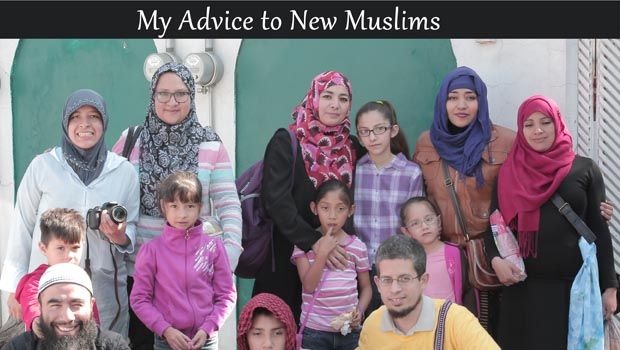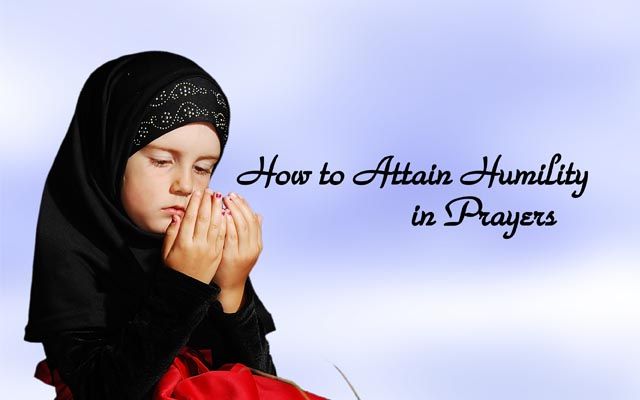Oftentimes when a person embraces Islam, he or she is unsure of what steps to take next. After much effort to arrive at the decision to proclaim the shahadah, the testimony of faith, with conviction and sincerity, their journey continues. Knowing where to go from there can help a new Muslim steer clear of hardships and misguidance. I am a Latino convert of over twenty years who has had a chance to study Islam and Arabic in the US and Saudi Arabia. In this article, I offer my advice to new Muslims.
Learn About Allah
The science which deals with this is called al-tawhid, which means “to single out Allah in worship”. Actually, al-tawhid is classified into three categories – tawhid al-rub?b?yah (singling out Allah in His Lorship), tawhid al-asm?’ wa al-sif?t (singling out Allah in His Names and Characteristics), and tawhid al-uluh?yah (singling out Allah in worship).
Getting to know Allah is very important. Having newly entered Islam, one might still have a lot of misunderstandings about his/her Lord. In Islam, we recognize that our original state of being is one of not having knowledge, and Allah sent prophets to us to teach us about Allah and the correct way to worship Him. Allah says “We have sent to every nation a messenger (saying) “Worship Allah and avoid worship of other than Allah.” This knowledge is the most important thing a Muslim can learn and the first obligation upon him/her. One should be continually learning, recognizing, purifying, and acting upon tawhid.
The first words uttered to enter Islam – “L? il?ha illa All?h” – are related to al-tawhid. These words are in fact a statement confirming al-tawhid. They should also be the last words a Muslim says just before he/she dies. That being the case, we can say that al-tawhid should also be the last matter in life.
Learn the Qur’an
Allah sent the Qur’an to us as a guide to live by, to judge by it, to recite it, to use it as a cure, to learn and teach it, to reflect upon its words, and to make it the center of our lives. Indeed, the Qur’an is one of the greatest miracles. We should spend time learning how to recite it in its original language. We should read its translation in the language we are most fluent and comfortable with. We should also invest time in our lives to familiarize ourselves with its verses. Indeed, every single verse is itself a sign (?yah) from Allah. It is Allah’s Message to us and instructions on how to live our lives and fulfill what Allah wants us to do.
Start Praying Immediately
Prayer is an essential part of Islam. The prophet (peace be upon him) said, “The covenant that distinguishes between us and them is the prayer, so whoever abandons it has disbelieved.” (Reported by Ahmad, Al-Nisai, and Al-Tirmidhi).
Avoid Bad Company
It is very important for new Muslims to stay away from bad company. Why do I say this? There are many negative and destructive behaviors that some people see as normal or even praiseworthy. Some individuals accept certain actions as being normal or acceptable; for example, dating and premarital sex, unnecessary intermixing of the genders, drinking alcohol and going to nightclubs, etc. These people have not yet understood the importance of living a pious life or felt the impact of establishing regular prayer. They may not even accept the existence of a Creator. This type of bad company might divert you – intentionally or unintentionally – from your new chosen life. They are not upon the correct path; so how can you expect them to aid you on the path that you have already chosen and recognized to be the one and only truth?
Attend the Masjid Regularly/Get Involved
Islam is a religion in which community is very important. Prayers are preformed in congregation five times a day. Males should try to make a great effort to attend all of these five prayers or as many as he can in the masjid if there is no difficulty in him doing this. Women are certainly allowed to pray in the masjid, but are encouraged to pray at home when children or other home matters demand attention. I would also suggest getting involved in whatever capacity you can at the local masjid.
Learn Arabic
Arabic is the language of Islam since the revelation was revealed through this language. Arabic is a universal language and is spoken by believers all around the world. The more we understand Arabic, the better we can understand the Qur’an.
I would suggest learning as much of the Arabic language as possible. Focus on the correct recitation of the words, and on understanding their meaning.
Additionally, one should not make it a stumbling block to learning or practicing the religion. At times, Muslims get diverted from other matters and may not even pray or memorize the Qur’an with the excuse that he/she has not mastered Arabic yet. Not knowing enough Arabic should never be used as an excuse for one to fall short in other areas.
Learn the Seerah
Muslims should learn about the Prophet Muhammad’s (peace be upon him) life. Seerah is the science which teaches about the life of the Prophet Muhammad. We should learn about his life and take lessons from it. We should also learn how he dealt with situations and try our best to model our lives according to his life. Indeed, Allah said, “You have in the Messenger of Allah the best example.” All of our actions in life should accord with his Sunnah (way of life, instruction, actions, and tacit approval).
Learn About he Early Muslims
There are often times where Muslims differ on issues related to the religion. Sometimes these differences are legitimate, and sometimes they are not. Allah says, “If you differ in anything, bring it back to Allah and his Messenger.” This means that we should resolve our problems by going back to Allah’s Qur’an, and in our times since the Messenger is not alive, we should go back to his Sunnah. However, there may still exist some differences of opinion on the interpretation of the Qur’an and Sunnah. Therefore, we should rely on the interpretation of the early Muslims, namely the Prophet’s Companions, their followers, and the followers of the followers. By this we can get the best and most accurate interpretation of Islam.
If these early generations of Islam had a consensus on a particular matter, then it is not permitted to differ in that matter. If they differed on something, then the varying viewpoints are acceptable. We should never rely on our own opinion on things that have already been established or make it an issue of disunity among the Muslims.






